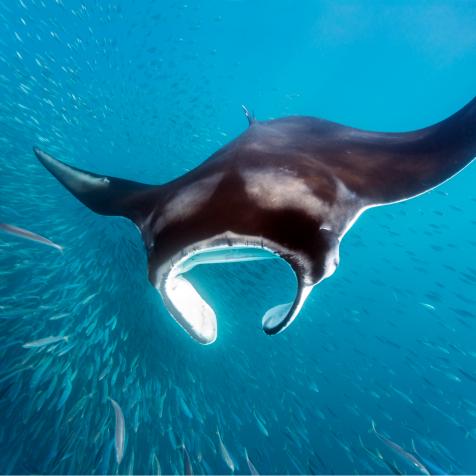
Shutterstock
Earthworms Aren't as Good for the Soil as You Think
Are worms really an invasive pest outside of the garden?
For many people, earthworms trigger memories of childhoods spent rooting around in the dirt or thoughts of a home garden teeming with fresh veggies. Earthworms have long been considered a gardener's best friend since they can help aerate and enrich the soil, and even help the planet as a whole. But for most earthworm species you find in North America, that's where their benefits end. That's because they're an invasive pest that's a threat to hardwood forests.
What's Good for the Garden ...
Fun fact: If you live in North America, you've probably never seen a native earthworm. They used to be everywhere until around 10,000 years ago when the last ice age blanketed huge portions of the continent with glaciers. The era that brought North America the Great Lakes killed off most of its native earthworm species.
But when people move from place to place, they tend to bring hitchhikers with them, and the first European settlers in North America were no exception. The first European earthworms arrived in the 1600s in ships' ballast and the soil of imported plants. And today, a global economy brings soil, mulch, and fishing bait from all over — complete with foreign worms from Asia, Europe, and elsewhere riding aboard.
But for nearly 10 millennia, the forests of North America have evolved to get along without earthworms. Trees and smaller plants rely on the thick layer of dead and partially decomposed leaves that blankets the forest floor to help them grow and protect their roots. As any gardener knows, earthworms love chomping through leaves. As a result, there are many forests — especially those with mostly hardwood varieties like maple, red oak, poplar, or birch — that once had a thick organic carpet, but now are left with bald spots, leading to decimated herb species and hardly any tree seedlings taking root. Researchers also say earthworms also lead to a decline in populations of salamanders, songbirds, and orchids, to name a few, and they're also linked to the growth of invasive plant species.
#NotAllWorms
Before you curse every earthworm you see, it's important to know that there are a lot of earthworm species out there — about 5,000 globally — and not all of them are harmful. According to Scientific American, only about 16 of the European and Asian species are responsible for substantial damage. There are two, in particular, you may be familiar with. One is a European species known as the night crawler, that staple of fishing tackle boxes that can measure up to 8 inches (20 centimeters) long. The other is an Asian worm called the Alabama jumper (AKA jumping worm, snake worm, or crazy worm) that you can spot by the wild thrashing that helps it literally jump off the ground.
Unfortunately, once these worms have moved in, there's no getting them out. The best hope is to keep them from spreading. If you live in an area with an earthworm problem, check your local parks or natural resources department to see how you can help if you spot one. Earthworms can be good for the planet, but only if they stay where they're needed.
This article first appeared on Curiosity.com.


















